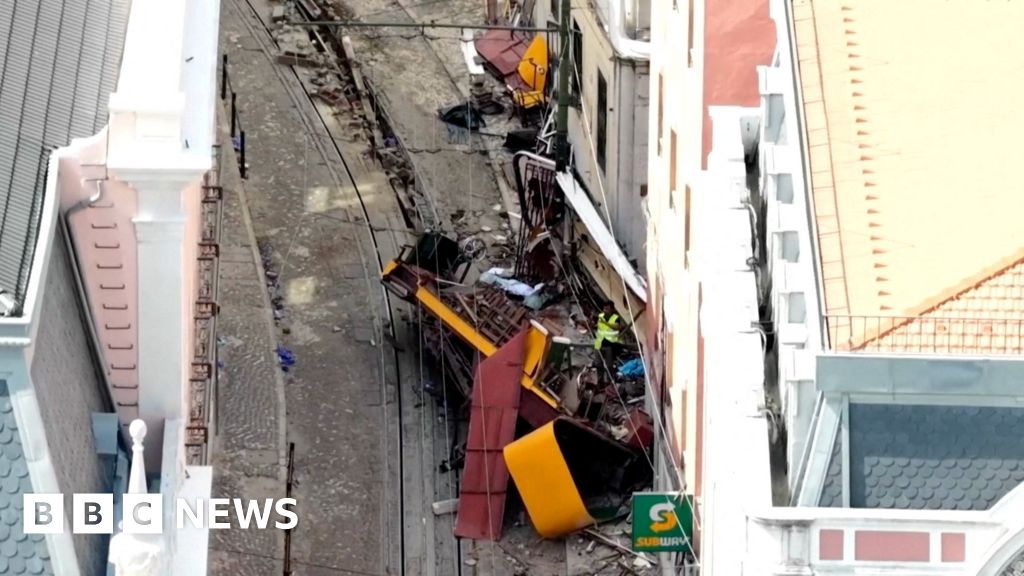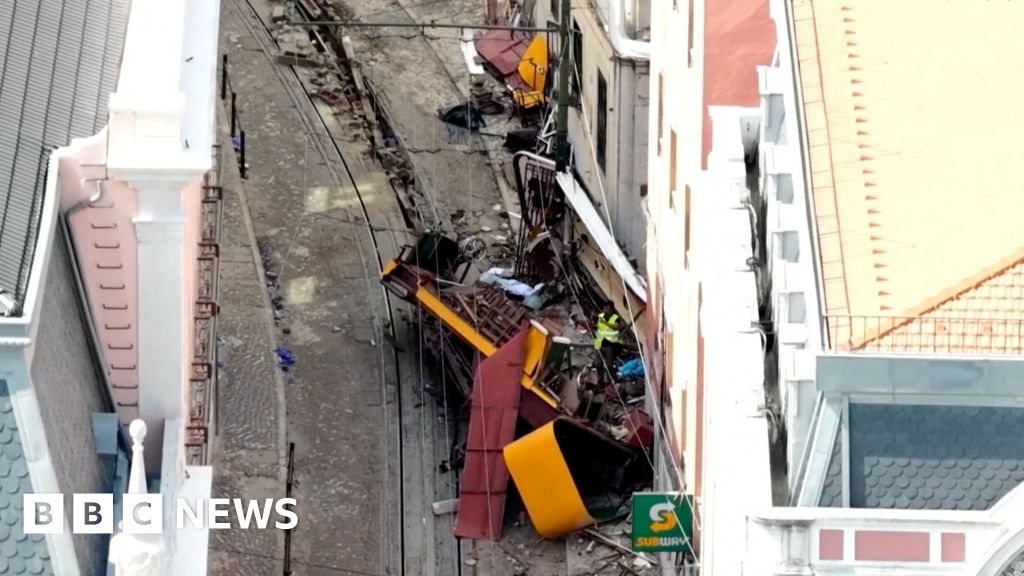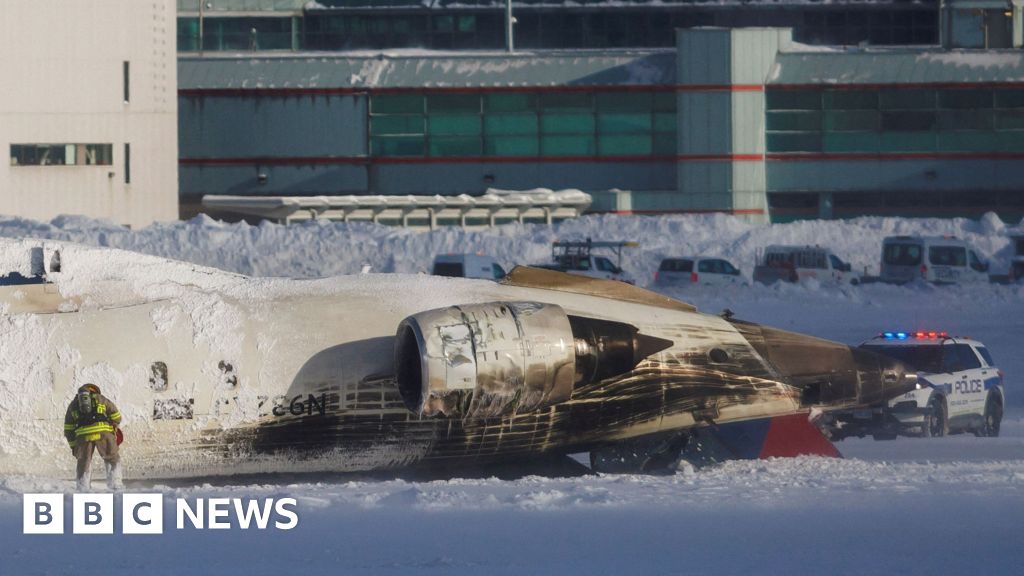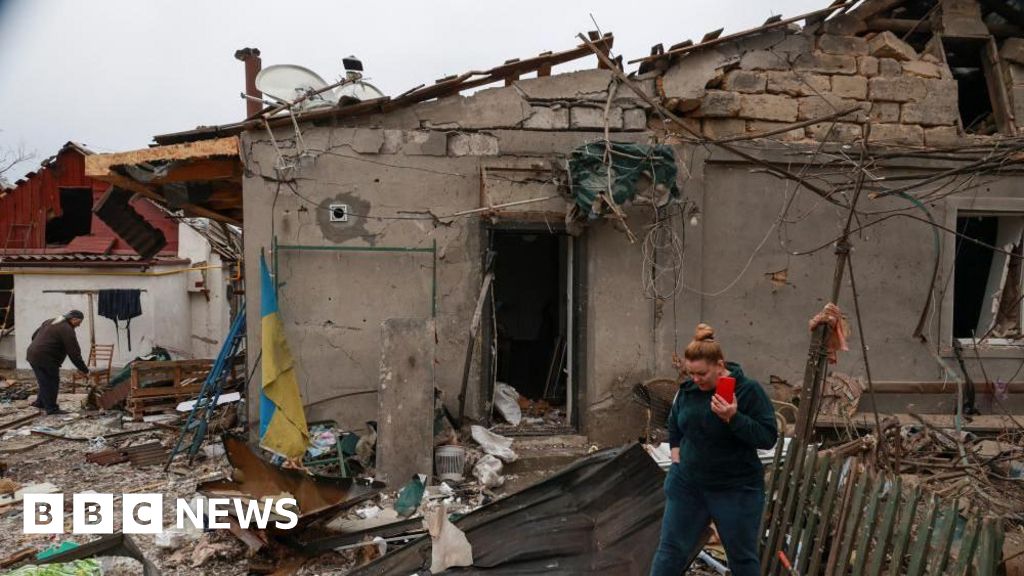
A preliminary report into last month’s funicular crash in Lisbon that killed 16 people has detailed a litany of failings.
Portugal’s Air and Rail Accident Investigations Bureau said an underground cable – which acted as a counterweight between two carriages and broke, causing the crash – was defective and had never been certified for passenger transportation.
It said the cable was not technically suitable and was acquired in 2022 by Carris, the company running Lisbon’s public transport that now says it has dismissed its head of maintenance of furniculars and trams.
The 140-year-old Glória funicular, popular with tourists, derailed and crashed into a building on 3 September.
There were 11 foreigners among those killed, including the three British nationals, while another 20 people were injured.
The preliminary report, released on Monday, said there had been no oversight by Carris engineers and the cable was not tested before it was installed.
The supervision and maintenance of the funicular by a company outsourced by Carris also did not work properly – apparently giving the Glória funicular the all-clear on the morning of the disaster, though it is not certain if the check actually took place that day.
The emergency brake system, which the driver correctly tried to apply when the cable snapped, did not function properly and was never tested in advance, the report said.
However, the preliminary report emphasised that the information gathered to date was “incomplete”, with further tests and analysis needed.
“The guilt or responsibility of any organisation or person involved in the incident should not be presumed,” it said.
Lisbon’s Mayor Carlos Moedas, who was re-elected on 12 October despite opposition accusations he had failed in his duty of oversight over the city’s funiculars, told SIC television that the report “reaffirms that the unfortunate tragedy… was due to technical and not political causes”.
Carris issued a statement stressing it was “not possible at this time to state whether or not the non-conformities in the use of the cable are relevant to the accident”, referring to a passage in the report that notes the same cables had been in use on the Glória funicular for 601 days without incident.
According to the accident report: “At this point in time, it cannot be said whether the use of this type of non-compliant cable intervened, or what intervention it had, in the rupture… and it is certain for the investigation that there were other factors that had to intervene.”
The company stressed that, though the cables had been brought into use under the current board of directors, who took office in May 2022, the acquisition process took place under the previous board.
Among other safety recommendations to be further detailed are that Carris implement a new safety management system in line with European best practice.
The full report will take about 11 months to complete. If that is delayed, a more detailed interim report will be released instead.
Meanwhile, all Lisbon cable cars have been ordered to be out of service until the necessary safety checks are put in place.
All braking systems need to be reviewed to see if they can stop the carriages if the cable fails – which had not been the case in the Glória accident – the report advised.
It also recommended closing a loophole whereby Lisbon’s historic funiculars are exempt from legal and supervisory oversight that applies to other cable-driven forms of transport.



